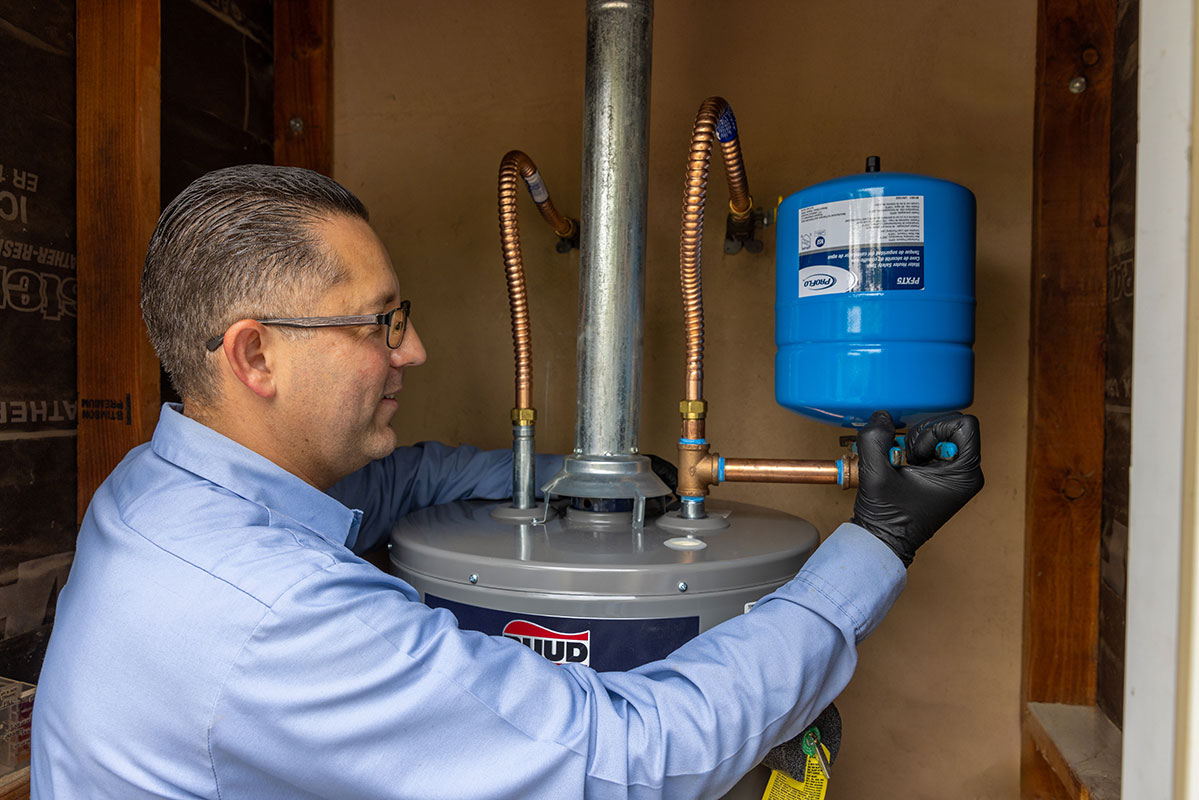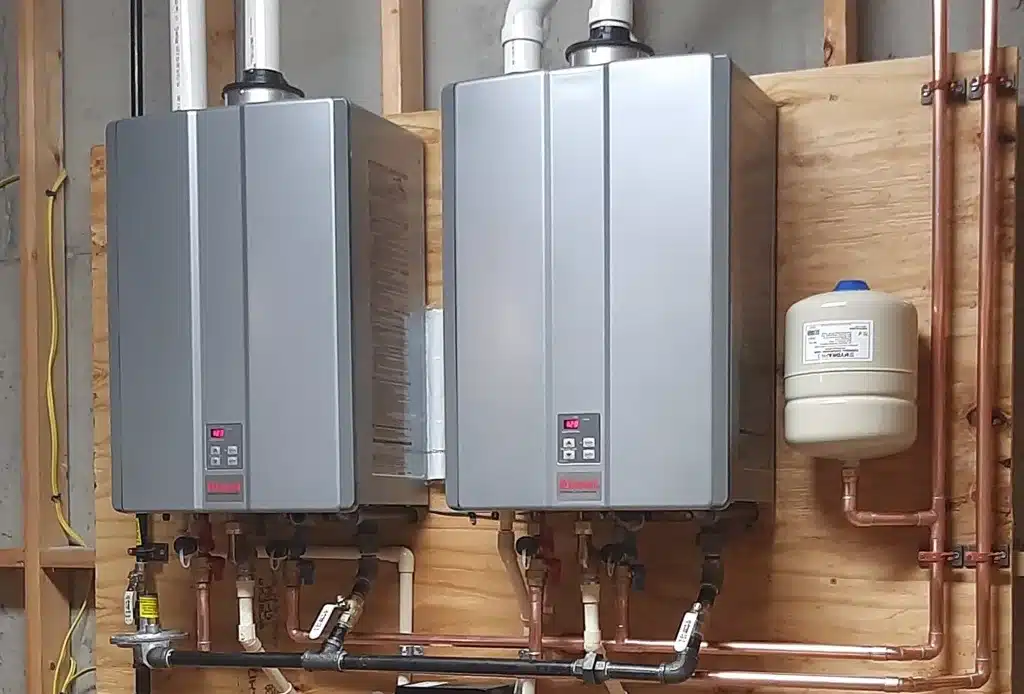Expert Water Heater Installation Services for Consistent Home Heating
Total Overview to Water HeaterSetup and Substitute
Understanding the complexities of water heating system installation and replacement is vital for homeowners seeking to make sure performance and reliability in their warm water supply. From choosing the proper type and size to performing a smooth installment procedure, several elements need to be thought about to avoid common mistakes. This guide will offer you with the essential actions and understandings to browse the intricacies of this home improvement job, while additionally emphasizing important maintenance methods that can extend the life of your system. As you check out these elements, you may discover yourself reassessing your current arrangement and recognizing locations for renovation.
Types of Water Heaters
When considering water heater installment and substitute, it is necessary to understand the various kinds of water heating units available on the market. One of the most usual kinds consist of storage tank water heating units, tankless water heaters, heatpump water heating units, and solar hot water heater.
Tank water heating systems are conventional systems that store a certain quantity of warm water, making them readily offered when needed. They are usually less costly ahead of time however might incur greater energy expenses over time because of warmth loss. In contrast, tankless hot water heater offer warm water on demand, getting rid of the need for storage. They are power efficient and can conserve room, but their first costs are typically greater.
Warm pump water heating systems utilize power to move warm from the air or ground to heat water, offering considerable energy financial savings yet calling for even more room and specific installation conditions. Solar water heaters harness solar energy to heat water, providing an environmentally friendly choice with possible long-term cost savings, although they typically need a backup system for cloudy days.
Understanding these options ensures educated choices relating to installation and replacement, providing to certain needs and choices.
Selecting the Right Size
Picking the proper size for a water heater is critical to make sure ideal efficiency and effectiveness. An unit that is also little will battle to satisfy household needs, resulting in irregular warm water schedule and enhanced power usage. Conversely, a large hot water heater can cause unnecessary power waste and higher energy costs.
To figure out the right dimension, take into consideration the home's height warm water usage. This can be determined based on the number of owners and their normal warm water needs. As an example, a household of 4 may call for a hot water heater with an ability of 50 to 80 gallons, depending on the usage patterns, such as synchronised showers and laundry.
Furthermore, analyze the recovery rate, which determines just how quickly a heating unit can restore warm water after it has been used. For tankless designs, concentrate on the circulation rate, measured in gallons per minute (GPM), to ensure it satisfies the house's simultaneous demand.

Setup Refine Summary

Following, the old system must be separated and eliminated, making sure to comply with local codes and guidelines concerning disposal. As soon as the old unit is out, the new water heating system can be positioned in location. This step includes connecting the water system lines, ensuring that all fittings are safe and leak-free.
After establishing water links, it's important to connect the power supply, whether electric or gas, following the maker's guidelines carefully. As soon as all links are made, the system needs to be loaded with water, and the power can be transformed back on. It's essential to inspect for leakages and make certain the check my source water heater is functioning properly prior to finishing the installation procedure.
Typical Installment Errors

Another regular blunder is neglecting to follow regional codes and guidelines. Falling short to stick to these standards can not only lead to security dangers yet might hop over to these guys additionally result in costly fines or the need for costly reinstallation.
Failing to safeguard links or using the incorrect kind of installations can lead to leaks and water damage. By staying clear of these typical installation blunders, property owners can ensure their water heating system runs securely and effectively, making the most of efficiency and durability.
Upkeep Tips for Durability
Proper upkeep of a hot water heater is important for its long life and optimal efficiency. Regular examinations and servicing can prevent expensive repairs and prolong the appliance's life expectancy. Begin by examining the temperature setup; it ought to commonly be set in between 120 ° F and 140 ° F for optimal energy performance and security.
Every 6 months, flush the storage tank to get rid of sediment accumulation, which can harm heating effectiveness and cause rust. To do this, switch off the heating unit, link a hose to the drain shutoff, and allow the water run until it is clear.
Anode rods ought to be examined each year and replaced when they are rusted. These poles assist stop tank deterioration by drawing in destructive components in the water.
Additionally, inspect the stress safety valve routinely to ensure it is functioning properly. This valve is crucial for protecting against too much pressure accumulation within the storage tank.
Finally, take into consideration setting up a professional maintenance check every few years for complete examinations and maintenance. By sticking to these upkeep pointers, home owners can dramatically boost the performance, safety and security, and life-span of their water heating systems, making sure trusted warm water for several years ahead.
Verdict
In verdict, appropriate installation and upkeep of water heating units are critical for Home Page making certain performance and longevity. By comprehending these essential facets, property owners can attain a reputable warm water supply while reducing potential concerns associated to water heating system operation.
Comprehending the ins and outs of water heater setup and substitute is critical for homeowners looking for to ensure performance and integrity in their hot water supply.Storage tank water heating units are standard systems that store a certain quantity of hot water, making them conveniently available when needed. In comparison, tankless water heating systems provide hot water on demand, getting rid of the demand for storage. Selecting a water heating unit that is either as well tiny or also large can lead to inefficiencies, resulting in insufficient warm water supply or extreme power intake.
By recognizing these important elements, house owners can attain a reliable hot water supply while minimizing potential issues associated to water heating unit operation. plumber Denton.